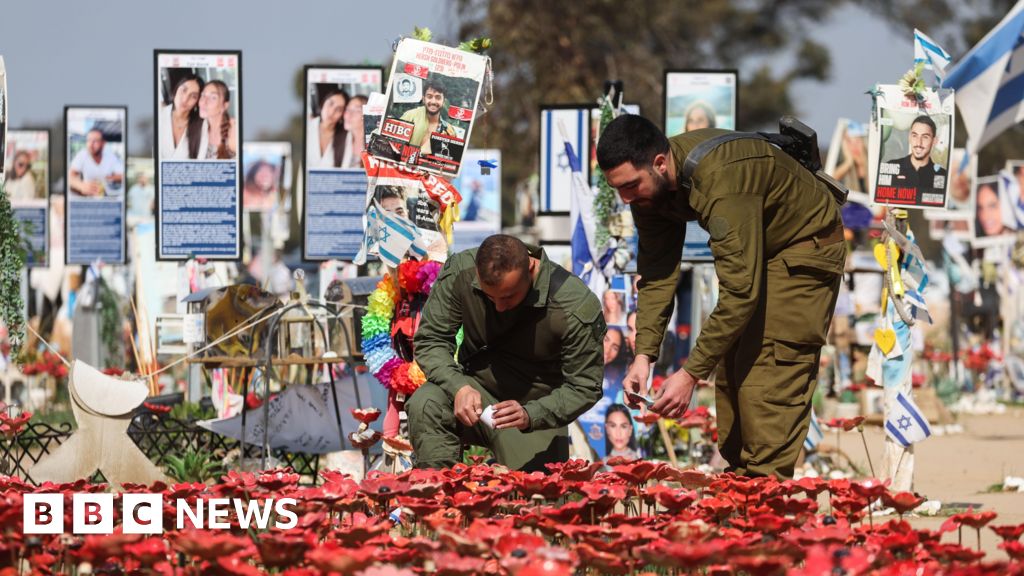

EPA
In a significant development, Israel’s military released an initial official assessment detailing the missteps that contributed to its shortcomings during the 7 October Hamas attack, a catalyst for the ongoing Gaza conflict.
The 19-page report reveals that the Israel Defence Forces (IDF) “failed to fulfill its duty of safeguarding Israeli civilians”.
While much of the content echoes previously known facts surrounding the tragic loss of roughly 1,200 lives—stemming from an incursion by about 5,000 Hamas fighters and affiliates, along with the abduction of 251 individuals—it underscores a grim reality.
Though lacking startling disclosures, the admissions regarding the military’s flawed assessment of Hamas’s goals and underestimated strength are starkly presented.
The findings indicate a perception by the military that Gaza represented a lesser threat, prioritizing concerns pertaining to Iran and Hezbollah instead. Moreover, the military’s stance towards Hamas was described as “paradoxical,” acknowledging its illegitimacy without pursuing alternative solutions.
The report outlines a “conflict management” strategy adopted by the military regarding Gaza, based on the erroneous belief that Hamas was “not inclined towards or preparing for a large-scale war,” a notion buoyed by Hamas’s misleading tactics.
Intelligence gathered from 2018 onwards, indicating a robust development plan by Hamas—a group recognized as a terrorist organization by Israel, the US, UK, and other nations—was deemed “unrealistic or impractical,” reflecting its broader ambitions yet not an immediate threat.
Remarkably, the report mentions that in the months preceding the conflict, the Military Intelligence Directorate was beginning to craft a new evaluation, suggesting that Hamas wasn’t merely aiming but constructing “a framework for operational planning”.
However, this pivotal insight failed to reach senior military intelligence officials.

Reuters
The evaluation reveals a worrying degree of complacency within the military regarding Hamas’s strategy and the actions needed to counteract the associated risks.
As the report states, “There was insufficient exploration of the question: What if our assumptions are incorrect?”
Over time, a notable disconnect evolved between the intelligence reports regarding Hamas and the actual situation on the ground.
Moreover, the report emphasizes a decline in the military’s comprehensive understanding of the adversary’s diverse worldview, which includes cultural, religious, linguistic, and historical contexts.
It advocates for substantial reforms within the intelligence community, promoting a culture of intellectual openness, skepticism, active listening, learning, debate, and constructive disagreement.
The desire to safeguard crucial intelligence sources hampered the military’s ability to promptly raise the alert status just before 7 October.
On that day, the Gaza Division “was effectively incapacitated for several hours,” hampering its situational awareness and ability to respond effectively.
While the Air Force reacted swiftly, distinguishing between IDF personnel, civilians, and aggressors proved to be a significant challenge.
In some instances documented in the report, the evacuation of injured soldiers took precedence over that of civilians.

Reuters
After reviewing the findings with high-ranking commanders on Monday, Lieutenant General Herzi Halevi, the outgoing IDF chief of staff, accepted full accountability for the failures.
He stated, “I acknowledge my responsibility. It rests with me. I was in command of the army on 7 October, and I accept the accountability for the implications of my leadership. I recognize the errors in every command, and I acknowledge my share in them,” he remarked in a video message.
Last month, Halevi announced his resignation due to these failures and advocated for a broader inquiry to prevent future attacks.
In contrast, Israeli Prime Minister Benjamin Netanyahu has not accepted personal accountability for the events of 7 October and stated that a state inquiry should be postponed until the conclusion of the conflict.
Critics of Netanyahu argue that he is reluctant to admit any personal fault.
Following the attack on 7 October, Israel initiated an air and ground offensive in Gaza, which has reportedly resulted in at least 48,365 fatalities according to figures from the Hamas-run health ministry in the region.










